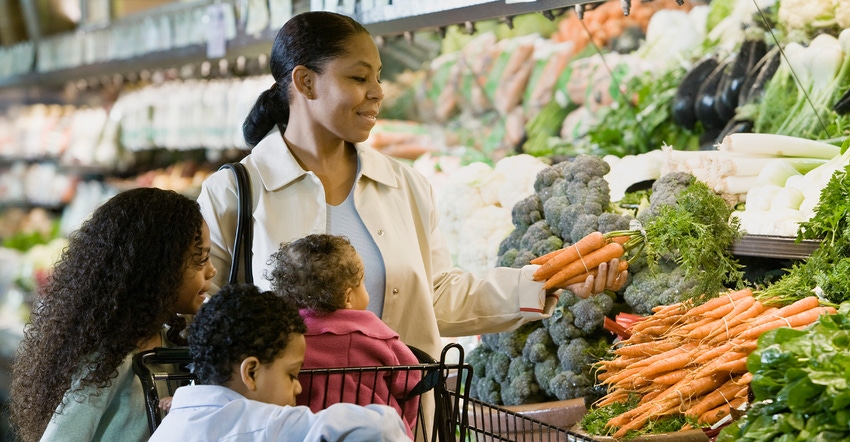Tackling Food Waste Represents Multibillion Dollar Opportunity for Grocery Retailers
Ultimately with a strategic, far-reaching plan involving a multi-department, multi-location approach, “businesses will reap collective benefits for themselves, their communities, and the environment and achieve the highest level of landfill diversion, optimize edible food recovery, and reduce costs,” says Ben Kuethe, vice president of Customer Solutions & Success, Divert.

Just shy of 5 million tons of unsold grocery store food was landfilled or burned in 2022, according to national nonprofit ReFED. That translates to around $5,000 to $10,000 a week of lost value. As they become increasingly aware of the jolting statistics, more food retailers are realizing their potential power to drive scalable change within their operations and within the retail food industry at large—both to benefit their business’ bottom line and the environment.
Having a thoughtfully designed, comprehensive, and executable program to manage unsold food sets grocers up for long-term, progressive success. That premise will be the underlying theme of a WasteExpo Food Recovery Forum session: “Comprehensive Solutions to Improve Wasted Food Management and Meet ESG Goals,” Monday, May 6, 2004, from 11:15 a.m. to 12:00 p.m. PST at the Las Vegas Convention Center.
In this joint speaking session, Ben Kuethe, vice president of Customer Solutions & Success, Divert and Brianna Kramer, senior manager, Corporate Retail Operations & Sustainability, Kroger will dive into the value of a truly holistic approach to tackling food waste and the supporting role data can play, while sharing their own experiences in the food retail space. Event attendees will learn in this case-style study format how optimizing reduction, recovery, and recycling opportunities at the individual store level can drive unified, scalable change and cost savings.
Kuethe begins with this advice: “Keeping store employees front of mind, and empowering them with the right tools, processes, and information to make simple, but impactful decisions on a daily basis is one key to success.”
Ultimately with a strategic, far-reaching plan involving a multi-department, multi-location approach, “businesses will reap collective benefits for themselves, their communities, and the environment and achieve the highest level of landfill diversion, optimize edible food recovery, and reduce costs,” he says.
Divert works with grocery chains across the U.S. to recover surplus food, some which is donated, some which is converted into products such as renewable natural gas. Leveraging technology, the company also provides retailers insight to be able to make operational decisions to prevent surplus or wasted food in the first place.
Kroger became Divert’s first customer when the tech company built and operated an onsite anaerobic digester at the grocery chain’s distribution center in Los Angeles. Owned by Kroger, the operation works through reverse logistics to salvage inventory from hundreds of stores – food that that can’t be sold or donated.
When trucks deliver groceries to Kroger locations, they drop off bins of surplus food that’s returned to the distribution center, where operators screen out packaging and contamination with depackaging technology. Processed liquid is fed into the anaerobic digester to ultimately produce renewable electricity and heat.
The understanding of how and why surplus food happens and how to prevent it has, to date, been fragmented or surface level. Data is proving a helpful tool in bringing the pieces together, providing insight that may otherwise go unseen.
Divert leverages technology that captures images that are loaded to the cloud and provides data showing customers what they are discarding. The company’s diversion platform and technology are set up to collect store-level information as each bin is processed.
“Using this data, combined with other waste streams, allows us to build comprehensive store profiles and insights on overall division performance. Clearly identifying which stores are likely still throwing food waste in the trash, which stores have the highest donation opportunities, and which stores are culling higher amounts of items compared to their peers,” Kuethe says.
“This is powerful information to not only quickly achieve program adoption, but also strategically initiate high-impact campaigns.”
The work is ongoing to identify and evaluate new ways to gather useful, actionable insights for retailers.
“The key for us is to not just collect data for data's sake. It needs to have a purpose and add value. Whether that's confirming compliance, driving operational excellence, fulfilling regulatory requirements, improving performance management, or measuring higher-level trends,” Kuethe says.
Success hinges on working with retailers to understand their capabilities and requirements while tooling them with new methods or metrics to enhance their overall experience and empower their people with better information.
Retailers are highly motivated to reduce their carbon footprint and improve their bottom line. Curbing food waste is without a doubt at the top of the list for tackling both, Kuethe says.
“We are seeing leading retailers, such as Kroger, more aligned than ever and making significant moves to implement scalable programs. They are applying capital, resources, and operational expertise to achieve aggressive ESG goals. It's an exciting time for the industry, and we're honored to be working with forward-thinking retailers to achieve significant, tangible results,” he says.
Don’t miss this WasteExpo session during the Food Recovery Forum – a chance to learn about challenges unique to the retail food sector, and how the industry can turn those challenges into a multibillion opportunity.
WasteExpo is North America’s largest solid waste, recycling, organics, food waste recovery, and sustainability tradeshow serving both the private and public sectors.
About the Author(s)
You May Also Like




